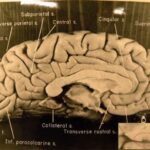The Holocaust was a horrific period in history where six million Jews were systematically murdered by the Nazi regime and its collaborators. While a deeply disturbing subject, understanding the Holocaust is crucial for a variety of reasons. This article explores the importance of learning about this genocide, its impact on individuals and society, and how to approach this sensitive topic in educational settings.
Understanding the Historical Impact of the Holocaust
The Holocaust was a pivotal event in the 20th century, fundamentally altering the political and social landscape of the world. Learning about it provides crucial context for understanding contemporary issues:
- The Rise of Totalitarianism: The Holocaust demonstrates the dangers of unchecked political power and the devastating consequences of totalitarian ideologies. Examining the Nazi regime’s rise provides insights into how propaganda, manipulation, and fear can erode democratic values and pave the way for atrocities.
- The Nature of Genocide: Studying the Holocaust helps us understand the stages and mechanisms of genocide, enabling us to recognize warning signs and potentially prevent future atrocities. The systematic dehumanization and persecution of Jews serve as a chilling example of how prejudice and hatred can escalate into mass violence.
- International Justice and Human Rights: The aftermath of the Holocaust led to the establishment of international legal frameworks and human rights declarations aimed at preventing and punishing such crimes. Learning about these efforts underscores the importance of global cooperation in upholding human dignity.
The Human Impact of the Holocaust
Beyond the broad historical context, the Holocaust profoundly impacted individual lives. Studying these personal stories is essential for fostering empathy and understanding:
- Victims’ Experiences: Learning about the experiences of Jewish individuals and families during the Holocaust – through testimonies, diaries, and historical accounts – humanizes the statistics and allows us to connect with the victims’ suffering and resilience.
- Perpetrators’ Choices: Examining the motivations and actions of those who participated in the Holocaust, from high-ranking officials to ordinary citizens, sheds light on the complex dynamics of conformity, obedience, and moral responsibility.
- Acts of Resistance and Rescue: Despite the overwhelming horror, stories of resistance and rescue during the Holocaust highlight the courage and compassion of individuals who risked their lives to help others. These narratives offer powerful examples of moral strength and the importance of standing up against injustice.
Approaching the Holocaust in Education
Teaching about the Holocaust requires sensitivity and careful consideration:
- Age-Appropriate Content: Educators must tailor their approach to the developmental level of their students, focusing on building foundational knowledge and fostering empathy before introducing more graphic details.
- Avoiding Generalizations: It’s crucial to avoid broad generalizations about Germans or other groups involved in the Holocaust. Emphasizing the diversity of experiences and individual choices helps students understand the complexities of this historical period.
- Focusing on Human Stories: Utilizing primary sources like survivor testimonies and personal accounts can make the Holocaust more relatable and impactful for students.
- Promoting Critical Thinking: Encourage students to analyze historical evidence, consider different perspectives, and develop their own informed conclusions about the Holocaust and its implications.
Conclusion: Remembering for the Future
Learning about the Holocaust is not just about remembering the past; it’s about understanding the present and shaping the future. By confronting this dark chapter in human history, we can learn valuable lessons about the dangers of hatred, the importance of tolerance, and the imperative to protect human rights for all. The Holocaust serves as a powerful reminder that indifference can be as dangerous as hatred, and that each individual has a responsibility to stand up against injustice.

